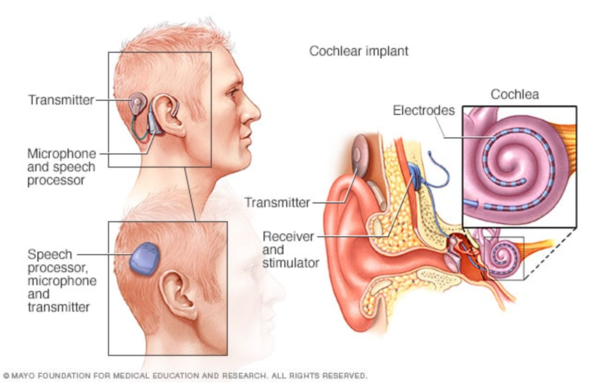Analysis of 390,000 Patients Reveals Substantial Dementia Prevention Benefits from Cochlear Surgery

Research findings have revealed that cochlear implantation in patients with severe hearing loss can reduce the risk of dementia onset to as low as one-third of the original level. This is the first domestic case to demonstrate through large-scale national data that cochlear implants can provide substantial help in preventing dementia in old age, beyond simple hearing rehabilitation.
Prof. Jang Young-soo’s research team at Sanggye Paik Hospital Department of Otolaryngology announced on Nov. 20 that this finding emerged from analyzing 391,195 patients diagnosed with moderate or severe hearing loss who met the disability registration criteria from 2010 to 2020, utilizing data from the National Health Insurance Service and the disability registration system in collaboration with research teams from Wonju Severance Christian Hospital and Seoul St. Mary’s Hospital.

According to the research team, all subjects had no history of dementia diagnosis at the time of their hearing loss diagnosis. Analysis results showed that 4.9% of the 5,814 cochlear implant patients were diagnosed with dementia during the follow-up period. During this period, the dementia diagnosis rate among the 385,381 patients who did not receive cochlear implants was 16.1%, showing approximately a three-fold difference.
By age group, among 356,850 patients aged 50 and above, the dementia diagnosis rate for the cochlear implant group was 11.2%, lower than the non-implant group (17.5%). The dementia diagnosis rates for elderly patients aged 70 and above also showed similar trends at 18.4% and 21.8%, respectively. Hearing loss patients who received cochlear implants also experienced relatively delayed onset of dementia. The period from hearing loss diagnosis to dementia occurrence averaged 1,886.9 days (approximately 5.2 years) in the cochlear implant group, compared to 587.7 days (approximately 1.6 years) in the non-implant group. Simple calculation shows that the cochlear implant group’s dementia onset was delayed by more than three times.
The research team explained that cochlear implantation reduces dementia risk because hearing rehabilitation decreases the brain’s cognitive burden caused by hearing loss. The more severe the hearing loss, the more energy the brain uses to distinguish and understand sounds, thereby reducing the capacity available for other cognitive functions such as memory or judgment. Cochlear implantation helps alleviate this brain overload while enabling efficient redistribution of cognitive resources.
Prof. Jang stated, “Hearing loss not only accounts for the highest proportion among modifiable dementia risk factors but is also an area that can be actively improved through treatment.” He added, “We have confirmed that cochlear implant surgery is not simply a device for hearing sounds but an important treatment method for protecting brain cognitive function.” He further noted, “Since effectiveness was confirmed even in patients over 70, hearing treatment in elderly hearing loss patients could become a new approach to dementia prevention.”
The research team plans to clarify the specific physiological principles of how hearing rehabilitation affects cognitive function maintenance through future randomized controlled clinical trials. The research results were published in the recent issue of the international academic journal Otology and Neurotology.


